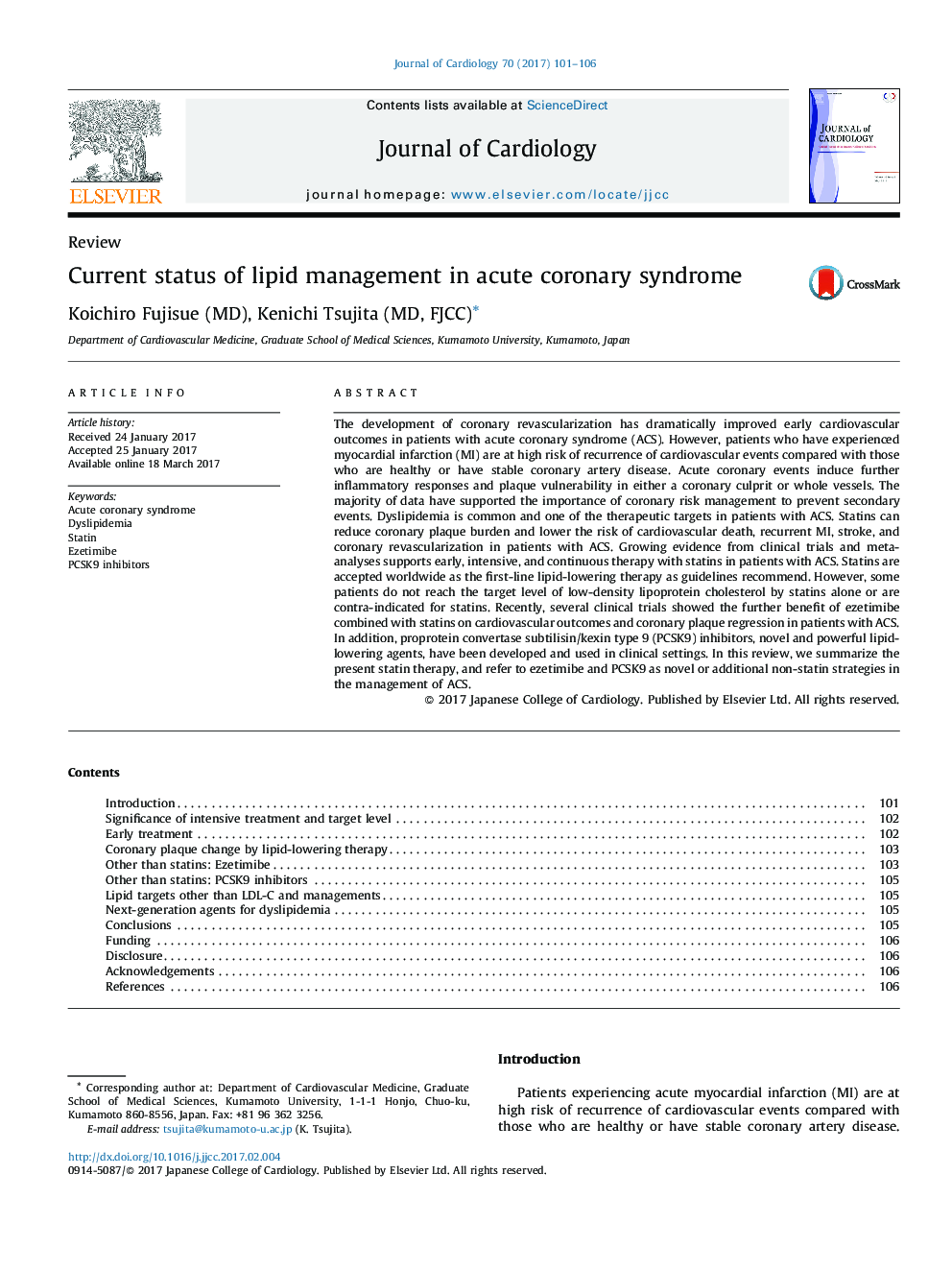| Article ID | Journal | Published Year | Pages | File Type |
|---|---|---|---|---|
| 5614657 | Journal of Cardiology | 2017 | 6 Pages |
Abstract
The development of coronary revascularization has dramatically improved early cardiovascular outcomes in patients with acute coronary syndrome (ACS). However, patients who have experienced myocardial infarction (MI) are at high risk of recurrence of cardiovascular events compared with those who are healthy or have stable coronary artery disease. Acute coronary events induce further inflammatory responses and plaque vulnerability in either a coronary culprit or whole vessels. The majority of data have supported the importance of coronary risk management to prevent secondary events. Dyslipidemia is common and one of the therapeutic targets in patients with ACS. Statins can reduce coronary plaque burden and lower the risk of cardiovascular death, recurrent MI, stroke, and coronary revascularization in patients with ACS. Growing evidence from clinical trials and meta-analyses supports early, intensive, and continuous therapy with statins in patients with ACS. Statins are accepted worldwide as the first-line lipid-lowering therapy as guidelines recommend. However, some patients do not reach the target level of low-density lipoprotein cholesterol by statins alone or are contra-indicated for statins. Recently, several clinical trials showed the further benefit of ezetimibe combined with statins on cardiovascular outcomes and coronary plaque regression in patients with ACS. In addition, proprotein convertase subtilisin/kexin type 9 (PCSK9) inhibitors, novel and powerful lipid-lowering agents, have been developed and used in clinical settings. In this review, we summarize the present statin therapy, and refer to ezetimibe and PCSK9 as novel or additional non-statin strategies in the management of ACS.
Related Topics
Health Sciences
Medicine and Dentistry
Cardiology and Cardiovascular Medicine
Authors
Koichiro MD, Kenichi MD, FJCC,
